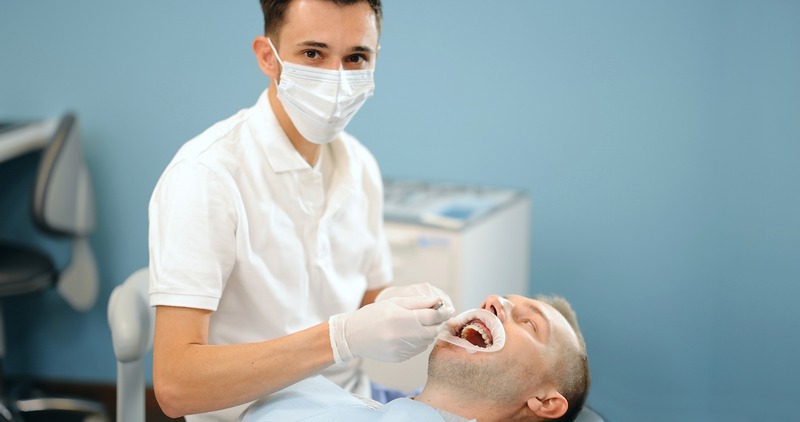Dental emergencies can spring out of nowhere, creating pain and worry. It’s crucial to know what steps to take when the unexpected happens and how to handle those sudden tooth troubles. We’ll cover the basics of what to do during a dental emergency, explore available treatment options, and highlight preventative measures to keep your dental health in top shape. Let’s equip you with the knowledge to handle these situations confidently.
What to Do In A Dental Emergency
No one plans for a dental emergency, but it’s important to stay calm and act swiftly if one occurs. Here are some immediate actions to consider:
-
Assess the severity: Determine if it’s a true emergency, such as severe pain, bleeding, or a knocked-out tooth.
-
Contact a dentist: Call your dentist or an emergency dental clinic immediately.
-
Control bleeding: Use a clean cloth to apply gentle pressure if there’s bleeding.
-
Save any fragments: If a tooth or part of it is knocked out, try to preserve any pieces.
-
Reduce swelling: Apply a cold compress to the outside of your mouth or cheek to mitigate swelling.
Common Dental Emergencies
There are several types of dental emergencies, some more common than others. Knowing these can help you prepare:
-
Toothaches typically arise due to common dental issues like cavities, which lead to decay, or infections stemming from gum disease. Keeping the mouth clean by rinsing with a mild saline solution can help remove food particles and reduce bacteria, offering temporary relief. Applying a cold compress to the cheek near the painful area can alleviate swelling and numb the region, but addressing the underlying cause often requires professional dental treatment.
-
When a tooth gets chipped or broken, it’s important to immediately rinse the mouth with warm water to clean the area and help prevent infection. Applying a cold compress to the outside of the mouth near the injury helps control swelling and can reduce discomfort. Promptly visiting a dentist is crucial, as they can assess the damage and provide treatment options such as bonding, veneers, or crowns to restore the tooth’s appearance and functionality.
-
In the event of a tooth being knocked out, it’s critical to act quickly to increase the chances of saving the tooth. Attempt to gently reinsert the tooth into its socket if possible, ensuring it is facing the correct way, and avoid forcing it in, as this could cause further damage. If reinsertion isn’t possible, keep the tooth moist by placing it in a container of milk or saliva, and seek dental assistance immediately to improve the likelihood of successful reattachment.
-
Losing a filling or crown can expose teeth to sensitivity and potential damage, so it’s important to deal with the issue quickly. Temporary relief can be achieved by applying over-the-counter dental cement or dental wax, which is available at most pharmacies, to hold the missing part in place until you can see a dentist. A professional dental visit is necessary as soon as possible to properly restore the tooth’s structure with a permanent solution, ensuring the health of the tooth and preventing further complications.
Available Treatment Options
Emergency dental care requires prompt evaluation by a professional who can determine the appropriate treatment. Here are some treatments commonly used:
-
Temporary fillings and crowns for lost restorations to protect exposed tooth nerves.
-
Root canal therapy for infected or inflamed tooth pulp relieves pain and saves the tooth.
-
Tooth extraction if a tooth cannot be saved or poses a risk of further infection.
-
Pain management through medication prescribed for immediate relief.
For restorative needs, ask your dentist about tooth implant services after an emergency extraction or damage. It’s crucial to explore available options to maintain oral function and aesthetics.
Preventing Future Dental Emergencies
Like most health issues, prevention is better than cure. Here are some simple steps you can take to avoid dental emergencies:
-
Maintain good oral hygiene: Brush and floss regularly to prevent decay and gum disease.
-
Wear protective gear: Use mouthguards during sports or activities that may result in injury.
-
Avoid hard foods: Be cautious with hard nuts, ice, or candies that could chip teeth.
-
Schedule regular dental check-ups: Routine visits can catch issues early before they become emergencies.
Sometimes, emergency dental care requires specialized procedures. To ensure optimal care, verify that your dentist or specialist is qualified and experienced in the necessary treatment.
Getting Help From Professionals
If you’re in need of professional dental assistance, finding the best dentist in Dallas, TX is vital. Good care in emergencies can prevent complications and ease discomfort efficiently. Make sure to choose a provider who is highly rated and trusted by locals.
Final Thoughts
Handling dental emergencies calmly is crucial. Knowing your options and immediate steps can significantly reduce distress. Being prepared and practicing preventive dental care helps prevent panic during unexpected dental issues. Seeking help from dental professionals specializing in emergency care ensures you receive quick, effective treatment, allowing for swift recovery and resumption of daily activities without pain.
Early intervention and expert guidance make a difference, highlighting the importance of regular dental check-ups and knowledge of emergency procedures to effectively manage sudden oral health problems.

